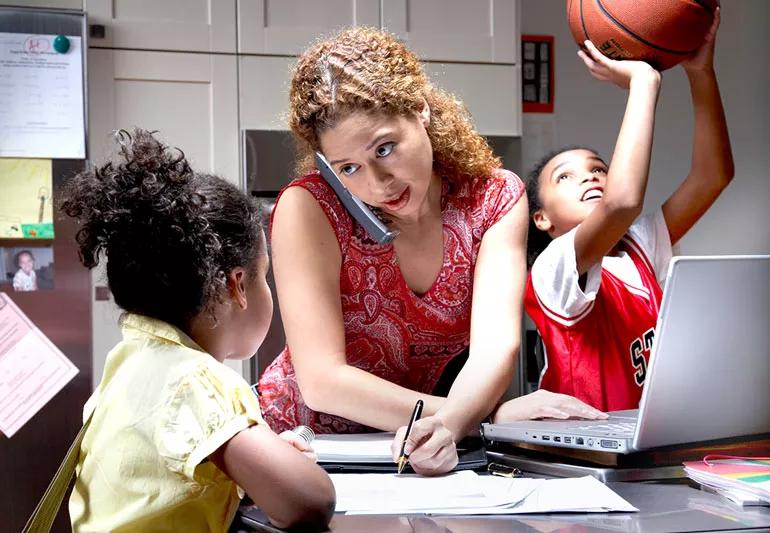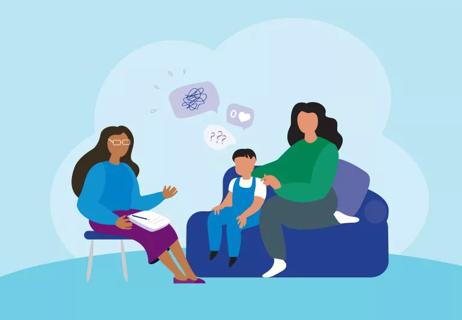The family can accomplish more by doing less

As a parent, you juggle everything from your career, chores, friendships, cooking, and most importantly, your kids.
Advertisement
Cleveland Clinic is a non-profit academic medical center. Advertising on our site helps support our mission. We do not endorse non-Cleveland Clinic products or services. Policy
While you’re busy juggling all of life’s most precious things, you start having the same expectations for your kids, too, whether you realize it or not.
“Technology has made it easier for kids to multitask, but this can affect both kids and parents negatively,” says pediatric psychologist Ethan Benore, PhD, BCB, ABPP.
In this fast-paced world, multitasking may seem like the most efficient way to get everything done. However, multitasking signals a problem rather than a solution because it actually slows us down and it makes it harder to do everything to the best of our abilities.
“Break down tasks or you’ll become the jack-of-all-trades but the master of none,” he says.
Kids make better choices and prioritize tasks more successfully when they tackle one at a time. But multitasking does more than affect kids’ productivity — it affects their brains, too.
Multitasking makes it hard for the still-developing brain to absorb information and connect thoughts and ideas. As harmful as multitasking can be for the brain, it also takes a toll on family relationships. Kids or parents who are constantly plugged into their smartphones, tablets, laptops or video games aren’t interacting with the family in meaningful ways.
Advertisement
“Kids who spend less time interacting with their parents learn less by example,” says Dr. Benore. “They don’t get to see how adults actually behave.”
Technological multitasking also increases generational boundaries. It becomes difficult for parents and children to feel like they are part of the same team and that's essential for a child’s development.
One study concluded that smartphones can reduce cognitive capacity. During this study, students put their phones in a different room did better on cognitive tests than those who put their phones face down on their desks and silenced them. This means that their phones were distracting them even on an unconscious level.
“Kids need to feel like they are part of a unit before they begin to discover how they fit into the world at large,” he says.
Multitasking isn’t going anywhere, but you can lessen its impact on your family, even for a few minutes a day, in three ways:
“Although life rarely slows down, set appropriate limits with your to-do lists,” he says. “We’ll all continue to multitask, but try and be reasonable about it, and use common sense.”
Advertisement
Learn more about our editorial process.
Advertisement

A glass child is the sibling of someone with special needs — often seen as the easy one, but carrying invisible burdens

Appetite changes, social isolation, repetitive behaviors and more may indicate that your child is struggling

Golden children often deal with perfectionism, low self-esteem and strained relationships as adults

Think of this behavior as a role reversal between parent and child — when a child takes on responsibility that’s not developmentally appropriate for their age

Tantrums and meltdowns are normal, but you can help your child manage their bigger emotions

American teens are facing unprecedented rates of depression and suicide, but you can be there to support and help them

Unexplained injuries, mood changes and sudden isolation may be signs your child needs help

Be involved in your kid’s care, but be mindful of boundaries

Wearing a scarf, adjusting your outdoor activities and following your asthma treatment plan can help limit breathing problems

Your diet in the weeks, days and hours ahead of your race can power you to the finish line

When someone guilt trips you, they’re using emotionally manipulative behavior to try to get you to act a certain way